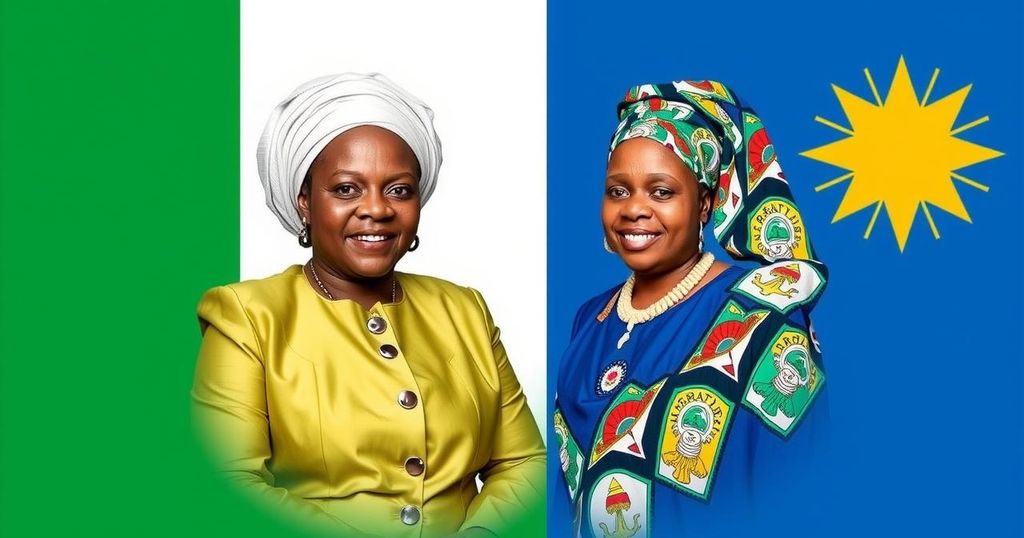Namibia Elections: Swapo’s Nandi-Ndaitwah Challenges IPC’s Itula
Namibia is conducting its most competitive elections since independence, with Netumbo Nandi-Ndaitwah of Swapo seeking to become the first female president, facing strong opposition from IPC’s Panduleni Itula. Key issues include economic challenges and the need for over 50% of the votes for a direct victory. Voter engagement is crucial, especially among the youth, as the nation also elects new parliament members.
Namibia is currently in the midst of an important electoral exercise as citizens vote in a potentially pivotal election, marking the first since the country gained independence 34 years ago. Netumbo Nandi-Ndaitwah is vying to become Namibia’s inaugural female president, representing the ruling South West Africa’s People’s Organisation (Swapo), following the death of Hage Geingob in February. Despite her candidacy, economic challenges such as high unemployment, poverty, and corruption allegations have diminished the party’s public support.
The main opposition contender, Panduleni Itula of the Independent Patriots for Change (IPC), alongside 14 other candidates, poses a significant challenge. Voter turnout appears strong, with long queues reported at polling stations across the nation. Polling commenced at 07:00 local time and will conclude at 21:00, with observers noting the necessity for any candidate to secure over 50% of the votes to achieve a direct victory. Should no candidate achieve this threshold, a second-round run-off will occur between the leading two candidates.
As Nandi-Ndaitwah cast her vote in Windhoek, she encouraged fellow Namibians to participate fully, emphasizing that their choices will shape the country’s direction for the next five years. Despite facing a political landscape characterized by traditional gender dynamics, Nandi-Ndaitwah’s extensive government experience of over 25 years instills confidence among her supporters. Meanwhile, Itula, who previously garnered approximately 29% of the vote in the 2019 elections, emphasized the significance of the day for Namibia’s democratic process as he cast his ballot in the capital. The interim leadership of the country is currently held by Nangolo Mbumba, who does not seek election at this time. Analysts are particularly focused on young voters, who represent the majority of the electorate in this election. Notably, the elections also include selections for new parliamentary members. Namibia, known for its spacious landscape and tranquil societal framework, has a population of around 3 million, with approximately half being eligible to participate in the elections.
As Namibia approaches its elections, the country stands at a crossroads in its democratic journey more than three decades post-independence from South African rule. The ruling Swapo party has dominated the political landscape for over 30 years, but recent economic hardships and social issues have spurred a more competitive political environment. The candidacy of Netumbo Nandi-Ndaitwah represents a significant milestone, aiming to shatter gender barriers within a predominantly male political arena. The engagement of young voters in these elections has been highlighted as a crucial factor that could potentially influence the results, thereby reshaping the future of Namibia’s leadership and governance.
In summary, Namibia’s elections represent a significant moment of potential change in its longstanding political narrative. With key figures like Netumbo Nandi-Ndaitwah and Panduleni Itula leading their respective campaigns, the outcome hinges on the electorate’s response to pressing socio-economic challenges and their desire for fresh leadership. The participation of young voters will be vital in determining the future trajectory of Namibian politics as citizens select not only their president but also their parliamentary representatives.
Original Source: www.bbc.com




Post Comment